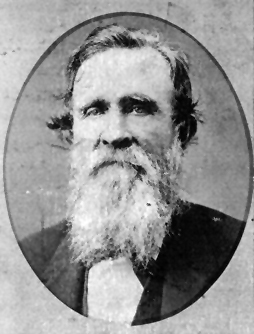|
Kentucky’s Civil War leaders…
At Richmond, Munday defended Bereans
whom he’d opposed three years earlier
(EDITOR’S NOTE: This is the 19th in a series about Kentucky’s officers and battle leaders during the Civil War.)
In a Civil War filled with ironies, none was more amazing that the situation that faced Union Col. Reuben J. Munday during the Battle of Richmond.
The Kingston landowner led a group of armed men to drive the Rev. John G. Fee and his band of abolitionists out of Berea in 1859. Three years later, he was a lieutenant colonel in the Union cavalry and on the same side as those Bereans who opposed the cause of the Confederacy.
Munday’s involvement began when he chaired a committee of prominent Richmond citizens who were opposed to “the Bereans … and their abolitionist doctrines and their intention to propagate them.” Subsequently, Munday was appointed head of a committee instructed to confront Fee and his group and inform them they had to leave the county and state within 10 days. Fee, however, they later learned, was out of town and not available for a visit.
Fee had established a village he would call “Berea” in the mid-1850s and initiated a church and a school that would become Berea College. His institutions would be based upon the gospel of “impartial love” and a foundation of uncompensated emancipation of all slaves. Emancipation was not a topic embraced by all Madison Countians, particular well-to-do slaveholders in the Richmond area.
On Dec. 23, 1859, Munday led a group of 63 armed men to the home of the Berea school principal, John A.R. Rogers, and handed him the letter ordering the expulsion. Rogers said he could not promise to leave, that he had “but one master to serve.”
Some of the Richmond delegation grew angry and rushed forward, but Munday wheeled in front of them saying, “Not now, boys. Come back in 10 days and do your worst.” In a period of two hours, the committee called on 10 other Bereans, including Fee’s wife, Matilda.
The Bereans, after being refused help from Gov. Beriah Magoffin, left on Dec. 29.
The committee that Munday chaired were men of property, social standing, wealth, prominence, education and were popular in the community. In addition to Munday, it also was ironic that many members later would find themselves on opposite sides, some fighting for the Union, others for the Confederacy.
Munday, during the Madison County conflict, went on to serve in the 6th Kentucky Cavalry Regiment under Brig. Gen. James S. Jackson.
The Kingston resident was a Kentucky state senator from 1851-55 and sometimes, Reuben J., was confused with another Munday, who’s first name also was Reuben, but, who apparently, had no middle name. What made things more confusing, was that Reuben Munday (no middle name) was a cousin who was a member of Confederate Company H, 11th Kentucky Cavalry.
During the war, Munday’s unit served at such Kentucky sites as Lebanon, London and Cumberland Gap, in addition to Richmond. The colonel died at age 70 in 1880 and is buried at Buffalo Springs Cemetery in Stanford.
|









